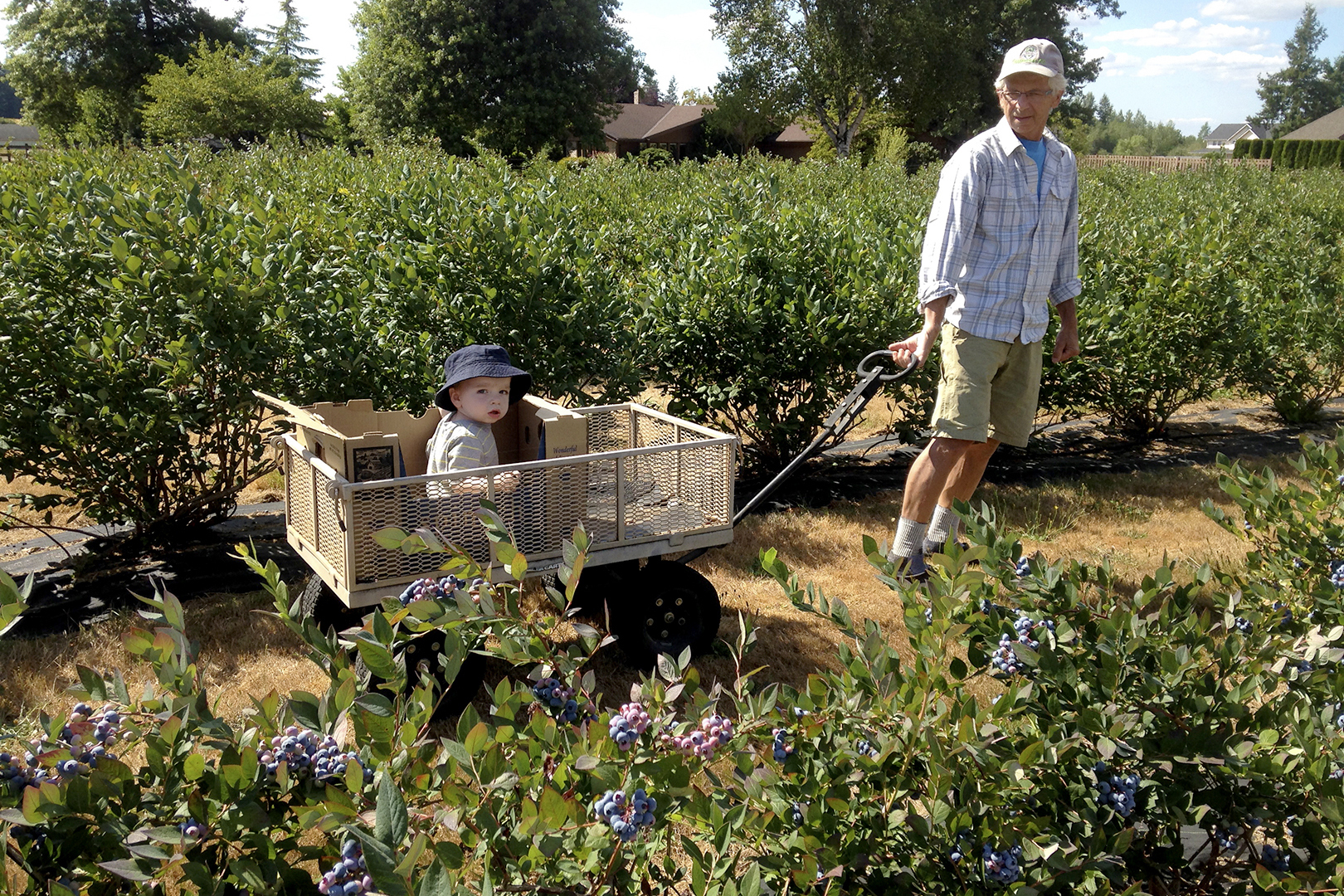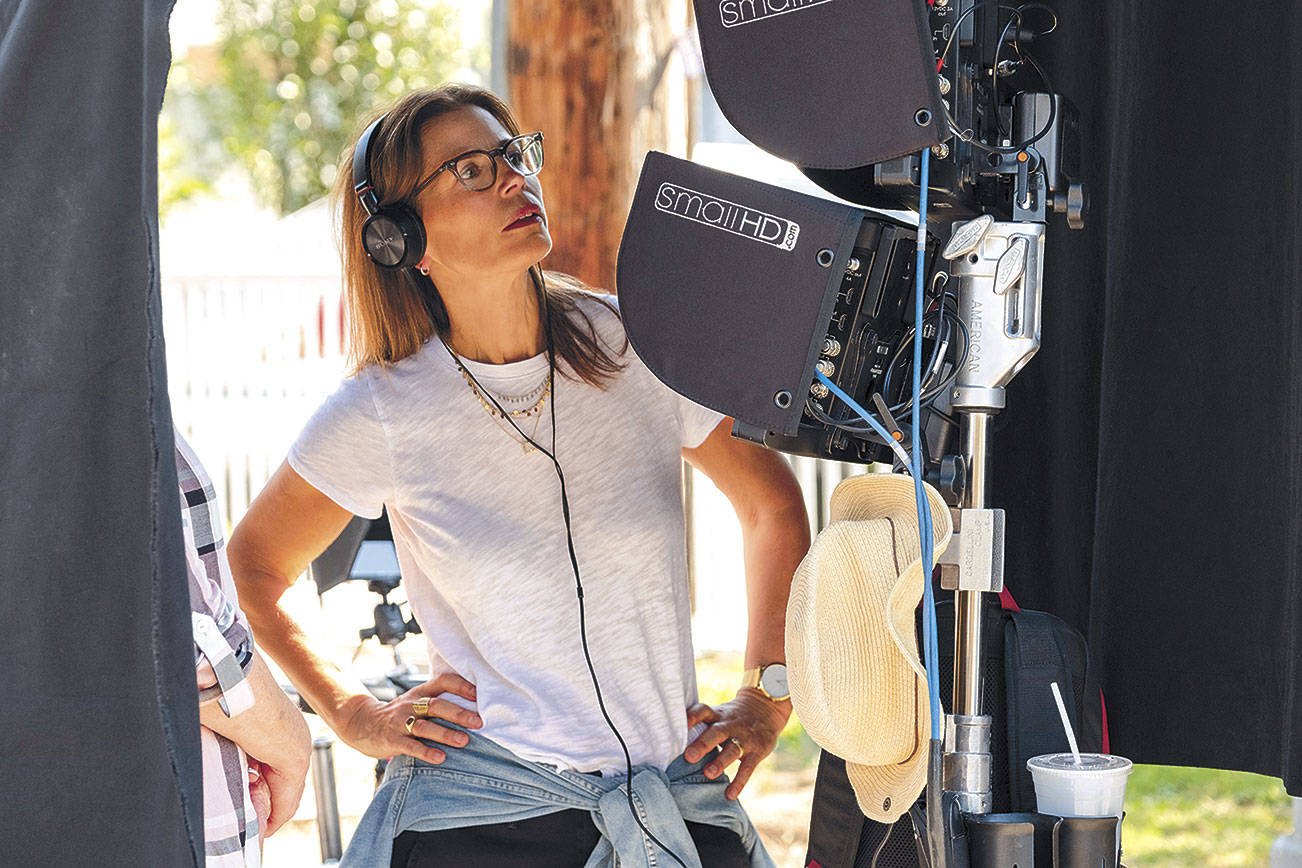This year’s early hot weather has put the area’s blueberries on a fast track to your mouth.
Up at Blue Dot Farm, a u-pick blueberry farm in Enumclaw, owner Jeff Madsen says they opened their gates to the hordes on Father’s Day weekend. “That is the earliest I’ve opened,” he says. “And that’s pretty common to everybody” in the blueberry business.
If a crop grows in Washington, there’s probably a farm around that will let you come and pick it out of the ground or off the bush yourself. But for the uninitiated, u-pick blueberries are a plentiful, summer-long crop that is sure to reward anyone with a pail and nimble fingers.
In fact, Seattleites are sitting smack in the middle of world-class blueberry country. Last week, the U.S. Highbush Blueberry Council, an industry group, released figures showing Washington is the #1 blueberry-producing state in the nation; last year, the state generated 103 million pounds of them. Half of all organic blueberries in the country come from our neck of the woods. One last stat: The group claims the direct value of our state’s blueberry industry is something like $80 million. But there are ways to make sure not all 80 million of those dollars come from your wallet, the primary one being u-pick farms.
U-pick farms have plenty to recommend themselves, but price is primo. Blueberry prices typically hover between $2 and $3 a pound—a steal considering many of the farms are managed organically. Along with that, there’s the serenity that comes with being out in the field, a delightful antidote to the bustle of the city. With all this in mind, here are a few questions to ask yourself when picking the right u-pick blueberry farm to hit up this summer.
When do you want to go?As Madsen notes, blueberry season is somewhat dependent on weather, but most farms have planted a wide variety of bushes that produce fruit at different times over the summer. That means that from now until the end of August, you are fairly certain to have berries to pick. However, it is important to call farms ahead of time or check their Facebook pages to make sure they are open and have fruit.
Where do you want to go? A peril of writing about u-pick farms is that, with so many to choose from, it’s nigh impossible to list them all in one story. Needless to say, wherever you are in the Puget Sound area, you are probably no more than an hour’s drive from prime picking—and probably much closer, with the Eastside offering a heap of options. The website pickyourown.org/WA.htm has a wealth of information about farms, including hours of operation, locations, customer reviews, and information on which farms are organic or use natural growing practices.
How do you feel about crowds? Any berry-picker can tell you that your heart sinks a little when someone else is browsing your patch. For those who want no-pressure picking, some farms offer membership programs that limit the number of people you’ll be competing with. For example, Blue Dog Farm in Carnation charges $25 for a yearly membership in what they call “an effort to make our berries more accessible to our customers and to foster a relaxed picking atmosphere.”
Speaking of Carnation, what in carnation do you do with all the berries you pick? Anyone who’s u-picked knows that primal instincts kick in when faced with all that ripe fruit, leading people to hoard far more than they should. Face it, there are only so many berries you can eat before you and the berries both start to feel a little mushy.
The good news is that blueberries freeze exceptionally well. Madsen, who uses natural growing practices at his farm, suggests not washing the berries (the water saps out some of the flavor when frozen) and sticking all you aren’t going to eat straight into the freezer.
He says some studies have found that blueberries—rich in antioxidants and vitamins—are even healthier when eaten hot. So, once frozen, start throwing them into pastries like scones—for the health benefits, of course.
dperson@seattleweekly.com








